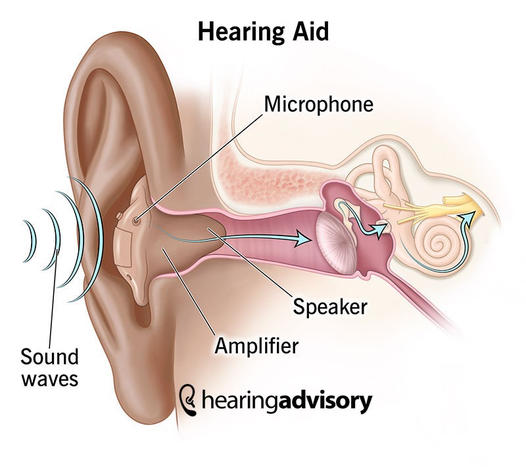Hearing loss can profoundly impact daily life. Wearing hearing aids offers numerous benefits, including improved communication and enhanced safety. When selecting a hearing aid, considerations such as lifestyle, technology features, and comfort are essential.

Understanding Hearing Loss:
Hearing loss, often characterized by diminished auditory sensitivity, can result from various factors, including aging, genetic predisposition, exposure to loud noise, or certain medical conditions. Individuals with hearing impairment may struggle with communication, experience social isolation, and face challenges in everyday activities.
The Importance of Hearing Aids:
Hearing aids play a pivotal role in mitigating the impact of hearing loss, enabling individuals to engage more fully in conversations, enjoy music, and participate in social gatherings. By amplifying sound and improving clarity, hearing aids facilitate better communication, fostering connections with loved ones and enhancing overall well-being.
Benefits of Hearing Aids:
1. Improved Communication: Hearing aids amplify sounds, making speech clearer and more understandable, thus facilitating effortless communication in various settings, from intimate conversations to bustling environments.
2. Enhanced Social Engagement: With improved hearing, individuals can actively participate in social activities, fostering meaningful connections and reducing feelings of isolation and loneliness.
3. Increased Safety: Hearing aids enable individuals to perceive important auditory cues, such as alarms, doorbells, and approaching vehicles, enhancing safety and situational awareness.
4. Cognitive Benefits: Addressing hearing loss with hearing aids has been linked to cognitive benefits, including improved memory, concentration, and overall cognitive function.
5. Enhanced Quality of Life: By restoring auditory function, hearing aids empower individuals to enjoy a fuller, more enriching life, free from the limitations imposed by untreated hearing loss.
Choosing the Right Hearing Aid:
Selecting the most suitable hearing aid involves several factors, including degree and type of hearing loss, lifestyle preferences, budget considerations, and technological features. Here are essential considerations when choosing a hearing aid:
1. Consultation with an Audiologist: A thorough assessment by an audiologist is crucial for determining the extent of hearing loss and recommending appropriate hearing aid options.
2. Style and Design: Hearing aids come in various styles, including behind-the-ear (BTE), in-the-ear (ITE), and completely-in-the-canal (CIC), each offering distinct advantages in terms of comfort, discretion, and functionality.
3. Technology Features: Consider advanced features such as noise reduction, directional microphones, telecoil compatibility, and connectivity options (e.g., Bluetooth) to tailor the hearing aid to your specific needs and preferences.
4. Comfort and Fit: Ensure the hearing aid fits comfortably and securely, with proper adjustments made for optimal performance and wearer satisfaction.
5. Trial Period and Follow-Up Care: Opt for hearing aids that offer a trial period to allow for adjustment and evaluation of performance. Additionally, prioritize providers offering comprehensive follow-up care and support services to address any concerns or adjustments needed.
Conclusion:
Hearing aids serve as indispensable tools in addressing hearing loss, offering a lifeline to improved communication, social engagement, and overall well-being. By understanding the importance of hearing aids, recognizing their myriad benefits, and navigating the selection process with informed guidance, individuals can embark on a journey towards renewed clarity and connection.





